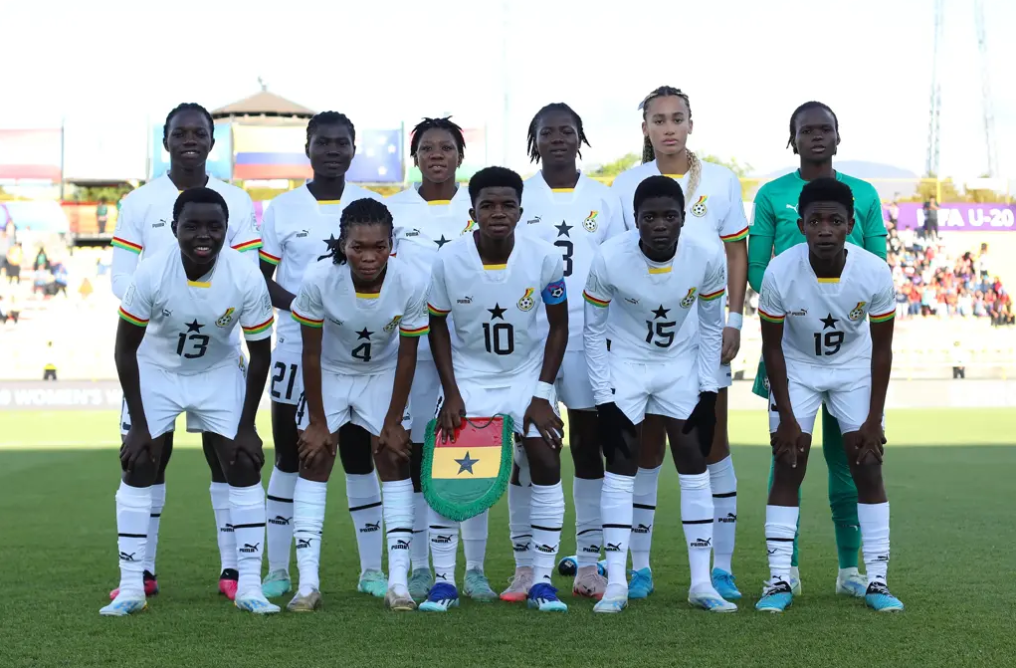Yusif Basigi has spent more than 20 years as a women's football coach in Ghana and has seen first-hand how attitudes have changed for the better during that time.
When he began the role, the idea of a girl or woman playing football was frowned upon. Today, female players are admired in the West African nation.
"There was a misconception about ladies playing football in Ghana," he told Inside FIFA at a training session during the FIFA U-20 Women’s World Cup 2024™. "They believed that [women] were supposed to be in the kitchen and to be a good wife. They thought [female players] become 'masculine' and looked like boys, so parents did not want their daughters to play football.
"Today, parents go out and buy kits for their daughters to come and play. Every community wants to see their girls playing football, especially for the national team. Communities recognise their players for making them proud, for representing Ghana... now they are heroes in their communities."
The televising of international women's tournaments such as the FIFA Women's World Cup™ and the FIFA U-20 Women's World Cup™ has been key to the changing of attitudes, he said. "Once people could see their daughters playing on television, it changed everything. As the popularity of women's football grew, it was introduced into schools."
Basigi said that support from both the Ghana Football Association (GFA) and FIFA has added to the momentum. The GFA provided a major boost in 2012 when it started the Women's Premier League which now has 20 clubs, up from the original 12, split into two groups.
"It has made a big impact and as a result we have developed a lot of talented players,” he said. "The current FA are doing very well for women's football. We have [television] coverage, so you can watch our matches live, and they provide us with a lot of equipment, we have sponsors, the media are also covering our matches live and that has given us a lot of exposure which is very good for us."
He said the GFA had also financed trips to Europe, both for the women's national teams and the coaches with Basigi himself spending time at the Bundesliga club Hoffenheim. "I learned about their philosophy of coaching and the way that all the teams play the same way, from the under-15 age group upwards to the senior team, so that makes it very easy when you are promoted to the next age group.
This is something he had implemented himself with Ghana. "That is exactly what Ghana is doing now and it makes the work easy for the first team because we know we are going to work the same way."
FIFA has provided support through the FIFA Forward development programme, which has financed new floodlights and other improvements at the GFA's national training centre in Prampram, making it easier to organise training sessions as pitches are no longer oversubscribed.
FIFA Forward has also helped in the maintenance of natural grass pitches at 80 venues in Ghana, with Women's Premier League and women's regional clubs among the beneficiaries, and the purchase of footballs for youth and regional development football. The latter project has helped regional women's teams where many of the U-20 national team began playing.
Playing at the FIFA U-20 Women's World Cup was an invaluable experience for the team, regardless of results. "It gives the team a platform and exposure. Some of the players had not even taken a flight before and this has been a very big opportunity for them, flying all the way from Ghana to Colombia and seeing a different environment and culture,” said Basigi, who himself is a FIFA regional coach educator.
The coach said the enthusiasm of the Colombian public for women’s football was reminiscent of the African Games, which Ghana hosted in 2023, when the stadium at Cape Coast was filled to its 15,000 capacity with more outside. “It is amazing to see a junior team getting so much enthusiasm,” he said. “Passion is growing, day in, day out.”
Source: FIFA

